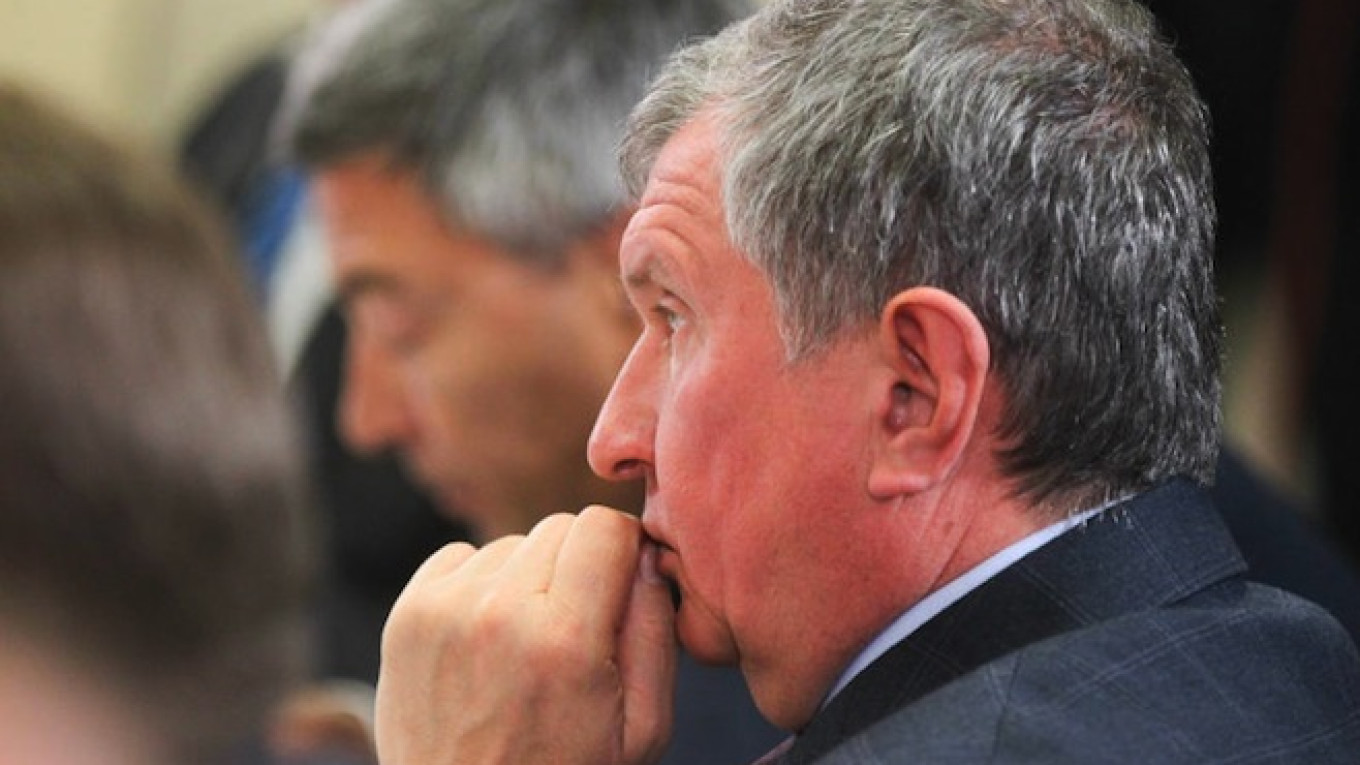President Vladimir Putin has accused Igor Sechin, a friend and head of state oil giant Rosneft, of betraying Russia's economic interests over a request for state aid on an oil project in Russia's Far East.
"Rosneft's interests are important … but there are also the interests of the entire economy," Putin told the oil boss, according to a transcript of their meeting published on the Kremlin's website late Wednesday.
Sechin at the meeting told Putin a new tax law meant that a much-needed oil refinery under construction in Russia's Far East will no longer be economically viable, and that Rosneft was now "counting on [government] help," to help build the plant.
"[The refinery] is extremely necessary for the region to compensate for the lack of capacity," Sechin told Putin. But the new oil tax law "of course changes the economics," he added.
The new tax law, dubbed the "tax maneuver," seeks to encourage refinery modernization by lowering the export duty tax on gasoline and making it more profitable to export. Sechin earlier wrote to Putin complaining that the change would make it unprofitable to sell gasoline in Russia and might affect Rosneft's projects.
Putin shot back that Sechin, during his time as a Kremlin official, had supported the tax plan and only changed his mind once becoming head of Rosneft. "Where is the real Sechin? Before or after [becoming Rosneft head]?" Putin asked. ?
Sechin is currently under Western sanctions over his allegedly close ties to Putin, with whom he worked first as his chief of staff in St. Petersburg before following him to the Kremlin in the 2000s.
Rosneft, Russia's largest oil firm, is also struggling with Western sanctions that curtail its access to foreign financing and oil technology. Rosneft has asked for more than 2 trillion rubles ($30 billion) from the Kremlin to help pay its steep foreign debts and finance operations, although the Finance Ministry has said it will likely receive only a portion of its request.
A Message from The Moscow Times:
Dear readers,
We are facing unprecedented challenges. Russia's Prosecutor General's Office has designated The Moscow Times as an "undesirable" organization, criminalizing our work and putting our staff at risk of prosecution. This follows our earlier unjust labeling as a "foreign agent."
These actions are direct attempts to silence independent journalism in Russia. The authorities claim our work "discredits the decisions of the Russian leadership." We see things differently: we strive to provide accurate, unbiased reporting on Russia.
We, the journalists of The Moscow Times, refuse to be silenced. But to continue our work, we need your help.
Your support, no matter how small, makes a world of difference. If you can, please support us monthly starting from just $2. It's quick to set up, and every contribution makes a significant impact.
By supporting The Moscow Times, you're defending open, independent journalism in the face of repression. Thank you for standing with us.
Remind me later.


